In television, everyone knows that a show’s first couple of episodes are absolutely crucial, as they set the tone for the entire series. Richard Schwadel was instrumental in setting the tone for the new AMC series Lucky Hank, as he edited the first two episodes of the Bob Odenkirk show.
The Better Call Saul alum stars as Professor Hank Devereaux, the chairman of the English department at an underfunded college in Pennsylvania. As Hank navigates the offbeat chaos in both his personal and professional life, he toes the line between midlife crisis and full-blown meltdown.
While Lucky Hank is based on Richard Russo‘s novel Straight Man, Schwadel tells Below the Line that the book was only used as a guide and that the series is not an outright adaptation as it’s doing something very different than the book.
The editor also discussed the inherent challenge of working on the first two episodes simultaneously, and he made sure to praise Odenkirk’s expressiveness while discussing the difficulty of having to choose between takes.
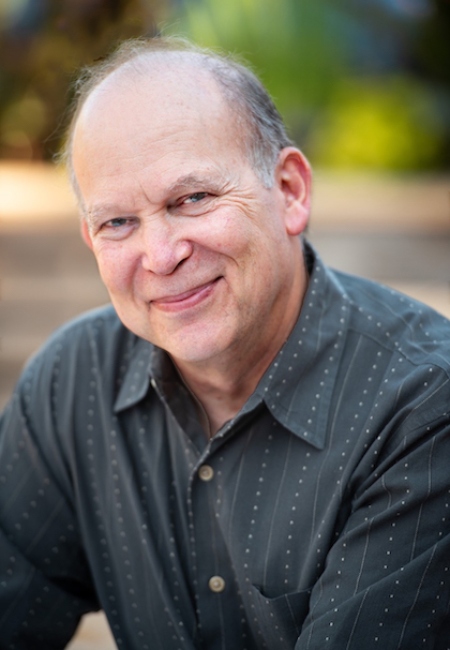
Below the Line: How did you find out about Lucky Hank and decide you wanted to work on the series?
Richard Schwadel: I got a call from a post super[visor] saying, ‘We have a show coming up. It’s [a] comedy. Are you interested?’ There wasn’t a lot of information in the initial call just to find out my availability. I said, ‘Yeah, I was available.’ I pressed them to find out what it was and there were some hints. I said, ‘Okay, yeah, for sure.’ I found out about a day or two later that Peter Farrelly was directing the first two episodes.
Pete and I have worked together — I did two seasons of Loudermilk and also a show that was originally for Quibi called The Now, which had an amazing cast like Dave Franco, Bill Murray, [and] Daryl Hannah. I did that with Pete as well. Once he found out I was available, it was just [a] formality of meeting the other people on the show. I still did an interview but he said that he would like to work with me.
BTL: I guess it helps knowing someone who’s already working on the series.
Schwadel: It always does if you have a prior relationship and they know your work. I guess if it were a production manager who knew that I had worked on the show but didn’t have any real involvement in the process, it might be a little different. When you’re in the trenches with somebody, if they like you and trust you, then that means a lot.
BTL: What were some of the challenges that came with working on the first two episodes simultaneously?
Schwadel: Well, that’s the first one [laughs]. Working on a pilot episode is always really difficult. You’re introducing a new world [and] new characters, and obviously, everything has to be presented [with your] best foot forward and that takes time. Thankfully, there was time in the schedule for the first two episodes to go back and forth. Everybody got a little bit of extra time — the director, the producers, the studio, and the network. I think that really, really helped.
The biggest challenge for me, I think, was initially, they were still writing while we went into production. I didn’t have an opportunity — normally, I would have a meeting with the producers or the showrunners and we’d talk tone and style and all of that, [but] there wasn’t time for that. They kind of hit the ground running so the challenge for me was, I had read the book [so] I knew what the story was, but I was told ‘we’re not the book.’ The book was a guide, but ‘we’re doing something a little bit different so don’t keep the book in your head in terms of what you’re trying to do.’ The challenge for me was trying to figure out what the tone of the show was [and] how to present my version of the tone of the show.
The performances… I mean, Bob Odenkirk, Mireille Enos, Suzanne Cryer… the cast is just amazing, so that was another challenge — having so many different takes of great performances. Which one do you go with? The thing that I’ve learned as an editor is, “Always go with your gut,” and that’s served me well.
I think putting together the first episode, in particular, was probably the biggest challenge in that regard, just trusting myself that I was on the right track and hoping that everybody else agreed. Pretty much, overall, I think I hit the right bases. I think I made the right choices.
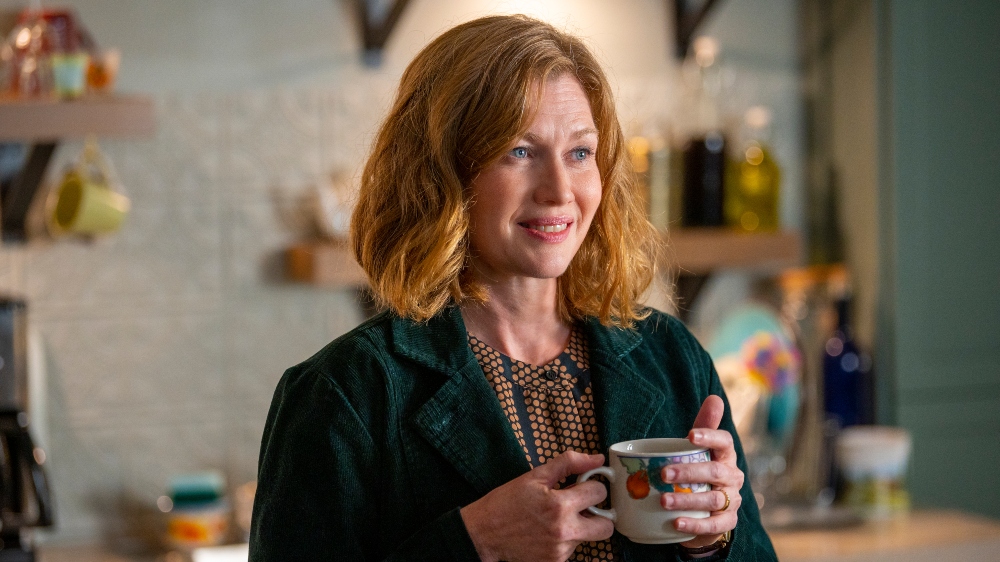
BTL: Was it easier working on Episode 7 than the first two episodes?
Schwadel: Oh, yes. Yeah, it’s interesting because [in] the first two episodes, the show presents probably a little more as a comedy than — I mean, it’s still a dramedy, but there’s probably a little more comedy. As it goes on through, I’d say around Episode 4, it starts turning a little bit more dramatic. By [Episode] 7, it’s a completely different feel of where we’re at in the story, so, much of… have you seen the first two?
BTL: I’ve watched the first four episodes, actually.
Schwadel: You know how much, in particular, the first two were just so in his head and we’re discovering how much this man was damaged by his father leaving him [and] walking out on his family. In [Episode] 7, he interacts with his father more so it’s more dramatic in that respect, but it’s also really emotional. Nicole Holofcener directed that episode and it’s got a different feel than Episodes 1 and 2.
I would say, as an editor, I probably let shots play out a little more, played the drama more, for sure, [and] the emotion more just because the script had more emotion in it than the first two episodes where you’re introducing Hank to the world. It was easier to cut, [though] it was difficult in that I was still working on [Episodes] 1 and 2.
For instance, let’s say I just watched the dailies of a scene [from] Episode 7. I’ve got everything mapped out in my head, and I sit down and start working. I get five minutes into cutting and then I get a text that Aaron and Paul are free — they want to work with you on Episode 2. It’s like, “No!” [laughs] There was a fair amount of that but when you’re working in episodic, you have to get used to working that way.
BTL: So it’s not like a film, where the editors are pretty much going to work from Day 1?
Schwadel: In what regard?
BTL: I’ve spoken with feature editors who say they pretty much start the editing process on Day 1, and then a few days after production wraps, there’s already a rough cut.
Schwadel: Oh. Well, we still do that. Typically, the schedule is, there’s a rough cut by about the third or fourth day after shooting wraps. It’s just the difference in a film is, obviously, it’s one project, so you get to work on that exclusively. It can get confusing when you’re working on three episodes and somebody says, ‘You know the scene where he is writing?’ You go, ‘Is that [Episode] 2 or 7, because he was doing a little bit of writing…’ [so] it gets tricky in that regard. It’s keeping a lot of spinning plates in the air.
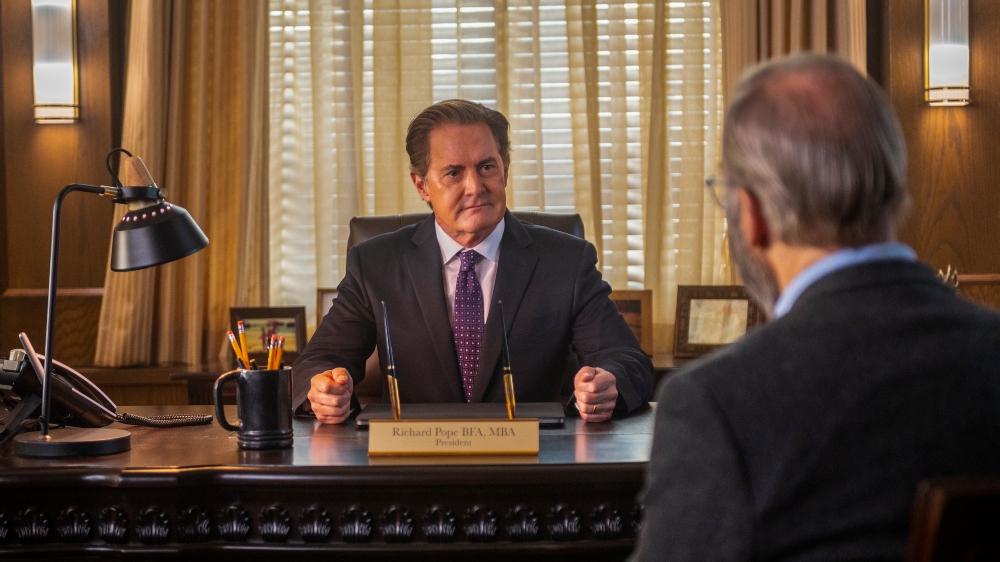
BTL: What did you use to edit the episodes?
Schwadel: I was on an Avid.
BTL: Have you found it easier to edit with the changing technology from when you first started out?
Schwadel: From when I started my career, oh, yeah. I’ve been through a lot of different changes in technology. The broad strokes would be three-quarter-inch joystick editing, then LaserDisc editing with various edit systems. I remember when Avid came to Warner Bros. and did a demonstration. I guess it was in the ’80s at some time. It was so pixelated, you could barely see a mouth moving. All these editors are going, ‘This isn’t gonna work, not until they get the resolution better.’ But yeah, LaserDisc and then Lightworks, Avid. I’ve done a little bit of Premiere. I’ve done a little bit of Resolve, but Avid is pretty much the tool that I use. Final Cut, too — don’t use Final Cut anymore, but I used to.
BTL: What was it like just to watch Bob Odenkirk in the dailies and then have to choose which performance or take you liked the best that fits the tone?
Schwadel: It was hard. That’s really difficult. I’m so grateful I was given the opportunity to do this and so fortunate in having the opportunity to watch this guy work and make choices about his work — it can be daunting. At the same time, incredibly entertaining. I was laughing throughout this. As an example, in the very first scene of the first episode, he’s totally checked out going over a laundry list of his groceries while this student is reading his story and the student is trying to get him engaged. There’s this one moment where Bartow, the student, pleads with him. Odenkirk just looks at him for a long beat, does a kind of grunt, and stares at him as a no answer. That was one of my first… I was like, ‘I gotta use that take.’
There were obviously other moments, but my point is he was able to do so much with a look and a grunt. He’s just so expressive. His face is really expressive and you can tell that this guy, what he was able to do with a guy going through this much pain and trying to cover it and attack other people verbally and stuff. It was fun. It was tricky. It was scary. There are a lot of adjectives I could use, but I’m just so impressed with him and his cast and the casting of the show. There’s probably a legion of fans who are expecting [a] character that is similar to Saul, but this is so different than that and he’s so brave for doing that. As an actor, it would be so easy to check out and just go, “Yeah, let’s do a rubber stamp of this. I got my fans and all…” but this is brave for him to do that, and he’s carrying the show.
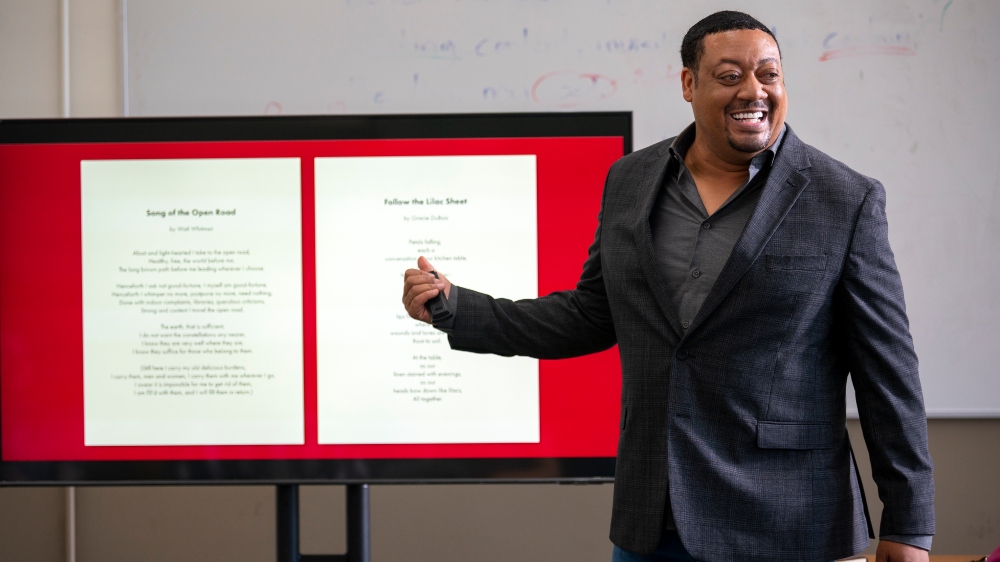
BTL: There were those of us who knew him from his comedy days well before he joined the cast of Breaking Bad. Even with Bryan Cranston, more of us knew him from his comedic work than his dramatic work.
Schwadel: Yeah. Well, they say comedy is harder. I mean, I think it’s harder to cry in a scene than it is to make somebody laugh. Somehow, it seems to be good training for some actors, for sure.
BTL: How did you first get interested in becoming an editor?
Schwadel: Back in university, I was a broadcast journalism major — we would go out, shoot stories, and then come back and cut them. As much as I liked shooting them, I liked creating the stories and the editing process. I ended up working. My first job was as a runner for a sitcom and my job was to deliver the master tapes from one studio where they were shooting to another studio. I hated the job but loved the environment I was in. I ended up gravitating toward the post-production department and asking a lot of questions. They ended up hiring me as an assistant editor and I did that for about six months.
They had this unusual system. I can’t get into the details because it will take 10 minutes to explain it. But essentially, there were creative editors and assembly editors. The creative editors would make all the editorial decisions and the assembly editors would put it together. An assembly editor left and they hired me to do that. I learned so much on that job. I worked there [for] a couple of years.
After that, I wanted to try something new and I went to a show called Real People, which was a reality show that celebrated wacky Americana and it was a huge hit. It was produced by George Schlatter, who did Laugh-In. On that show, I really learned how to tell a story because what they would do is they would go out and shoot all around the country — profiles on people or things people did.
Often, the film producers wouldn’t send an outline back so you just get a couple [of] hours of videotape that included interviews and B-roll. As an editor, you had to figure out, “What’s the story?” Usually, it was pretty obvious, but you still had to structure it and make it entertaining. But then you’d work with the producers, [and] they’d give notes and stuff when you got the story locked. They would play those stories back to a live audience and that was part of the show. I got to sit in the audience while my segments were playing and see that, “Oh, I do have a sense of humor. People are laughing at stuff that I did that I thought was funny.” That was really valuable.
From then, I ended up doing field directing and various reality shows. I did comedy spoof sketch shows. I ended up going back into sitcoms. I worked in sitcoms for about five or six years and cut sitcom pilots for networks. I moved to Vancouver and had to reinvent myself here because there was no comedy here when I moved here. It was all shows like Stargate, and MGM was doing a bunch of shows here. I started working on dramatic shows.
What I learned about Vancouver is you have to be very nimble in terms of the kind of work you do, because you can’t just be the comedy editor of Vancouver because you’ll never survive. You have to do a variety of stuff. You have to be able to use your different skills [in] different genres. That took me a little while but since I’ve been here, I’ve cut five features, and I don’t know how many TV series and TV movies. If I were in L.A., I would probably be one of the single-camera guys. It’s just a different experience here.
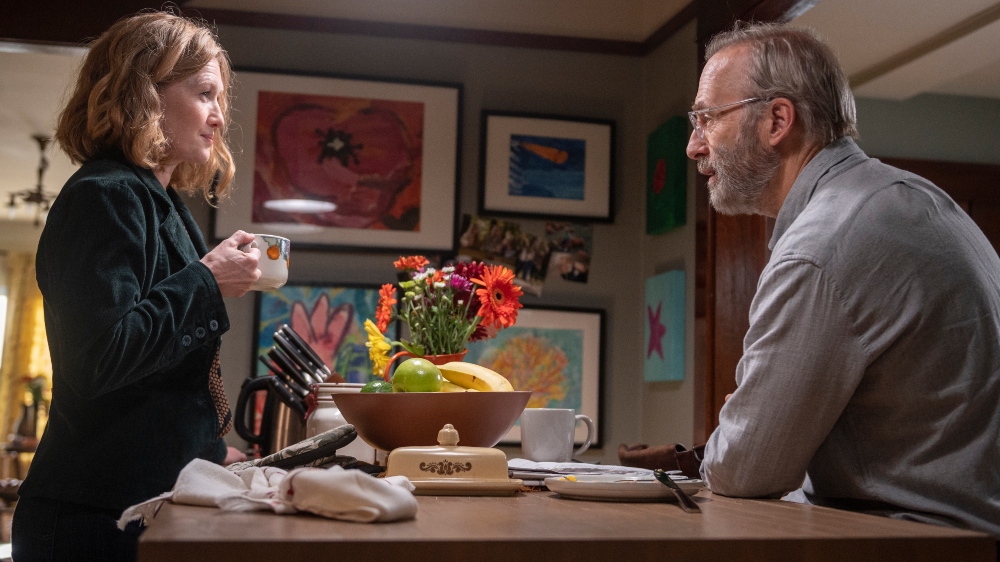
BTL: Did you go to SXSW for the premiere?
Schwadel: Yes. I had actually already had my ticket before I knew I was working on the show so that ended up being [a bit of] serendipity. That was a blast. It was my first SXSW and I think it was the second night the show premiered — primetime at 9 p.m. Saturday night was really exciting. It was great to see the producers and Aaron and Paul and some of the cast there, and for them to get some rewarding feedback from the audience for everybody’s hard work. Thankfully, there was laughter where there should have been laughter. What I found at SXSW [is that] the audiences are just so enthusiastic. It’s a great place to premiere something, for sure.
BTL: Yeah. I was there in 2018 and 2019. I would have been there in 2020 but then they canceled it because of COVID.
Schwadel: I bought a ticket. My ticket was for 2020 so I was all ready to go and then I just ended up deferring it. It’s quite the experience. When you’re there, are you just strictly all film or do you do other stuff, too?
BTL: I do a number of interviews, but my first year there, I attended the world premiere of Barry before it became big on HBO.
Schwadel: Wow. How was the audience’s reaction to it?
BTL: It was good. They had it at the now-closed Alamo Ritz.
Schwadel: Okay.
BTL: Thank you so much and it was so nice to meet you. I look forward to watching Episode 7 when they send that screener out.
Schwadel: Yeah, yeah. I think you’ll really enjoy it. It’s really quite different.
Lucky Hank premiered at SXSW and began airing on AMC in March, with the season finale due on May 7.





